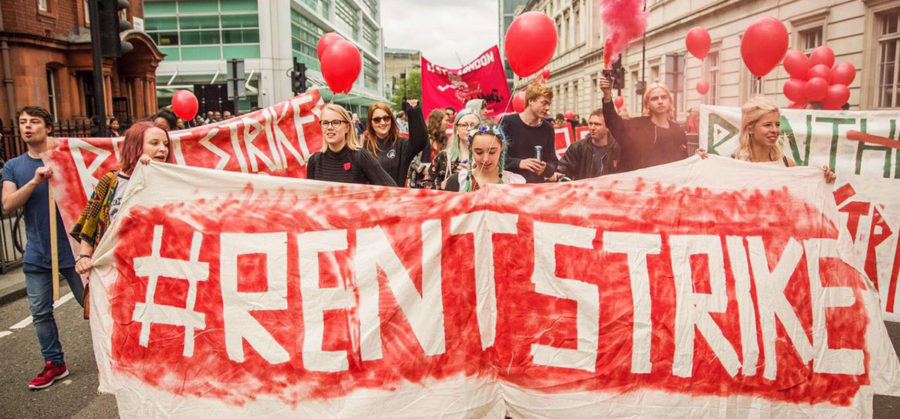A month ago, I went to a viewing of a two-bedroom apartment on Adelaide Rd. Sound nice? Calling it a hovel would be generous. It was a basement apartment: two cramped bedrooms and one small window, which faced out onto a debris-filled garden.
A slimy-looking landlord shook hands with would-be tenants, telling them he would put them on a waiting list and get back to them. I caught a glimpse of the list: there were about 25 names on it.
I left the house feeling depressed.
The government estimates that the number of students in the third-level system will grow by 38,000 to 222,000 by 2030. Last year, 6,691 students beds were created, but 93 per cent of these cost more than €840 a month. The answer to the housing crisis clearly isn’t coming from the government.
And College accommodation isn’t much better. Trinity’s student accommodation currently ranges from €7,000 to €9,000 a year – a grand higher than the maximum SUSI grant. This is an indication that the College’s accommodation is for a certain class of student.
In late 2017, students in University College London (UCL) were in the same boat as Trinity students now. UCL’s student accommodation increased by 56 per cent from 2009 to 2016. Once relatively low, the prices of the university’s accommodation were looking startlingly similar to the towering prices private landlords were charging and the university wasn’t lifting a finger to make it more affordable.
The answer to the housing crisis clearly isn’t coming from the government
So students tried something new: 250 residents of UCL’s accommodation withheld their rent, saying they would pay up when the university listened to their complaints. The rent strike lasted for five months. And then UCL capitulated – dramatically.
The university agreed to allocate £600,000 to an accommodation bursary for students struggling to get by for the academic year 2017/18. It also agreed to cut rents, costing the university £600,000, and froze rents across the cheapest 1,224 rooms. The concessions set the university back £1.5 million.
Rent strikes had succeeded with relatively little fuss. No mass evictions – just a positive result for students.
A year later, back in Trinity, the Provost emerged from House One to announce to the students gathered outside that the €450 supplemental exam fee the College had planned to introduce was scrapped, and fee certainty was to be implemented. The concessions came after two weeks of intense protest from Trinity students – protests more radical than even Trinity’s most optimistic left-wing students could have wished for.
This was Trinity College Dublin Students’ Union (TCDSU) at its finest. Kevin Keane, the president at the time, was forced to radicalise his approach to fighting supplemental exams, after this newspaper revealed that he had not opposed the supplemental exam fee increase at College Board.
Rent strikes had succeeded with relatively little fuss. No mass evictions – just a positive result for students
Propelled by veteran activists from Trinity, People Before Profit and enraged students, TCDSU transformed into a formidable protest movement. Group chats to plan actions were set up. Meetings were organised to plan the most intricate details of the Dining Hall occupation. The union backed and helped organise occupations of the Book of Kells and widespread trolling of Trinity’s facebook pages.
Take Back Trinity showed that whatever it takes to sustain a protest for a long time is in our DNA. If students want to take a stand on accommodation, we have to mix the passion of Take Back Trinity with the strategic prowess of the UCL rent strikers. This means TCDSU needs step up to the mark: accommodation needs to be its priority and its officers need to be bolder and more ambitious.
The recent rent increases for on-campus accommodation present TCDSU with a perfect opportunity to do this.
In the first weeks of term, TCDSU should hold a preferendum asking students if they back a campus-wide rent strike effective until the recent rent increases are reversed. If that passes, they need to lobby students living on campus to withhold rent for their second term and support them if they do decide to strike. It must also offer College an ultimatum: do as we say or we cut off one of your main sources of income.
Trinity clearly sees its on-campus accommodation as a cash-cow – the College’s income from accommodation has skyrocketed by 33 per cent to €13 million a year since 2014. This makes its accommodation an easy target for protest – the College needs the money.
TCDSU should hold a preferendum asking students if they back a campus-wide rent strike effective until the recent rent increases are reversed
Also, on-campus residents are fairly impervious to eviction, as the UCL rent strikes demonstrated: the College throwing students out on their backsides would be a PR disaster.
If an on-campus rent strike succeeded, it would set an extraordinary precedent, not only for Trinity, but for colleges across Ireland.
Rent strikes are a ridiculous idea until they happen – and then they work. They may burn bridges between TCDSU officers and the College administration, but we need to ask ourselves: do we want union officers to be cosy with Trinity’s bigwigs, or do we want a union that those bigwigs fear?
And, more importantly, TCDSU officers need to ask themselves what kind of officers they want to be.







